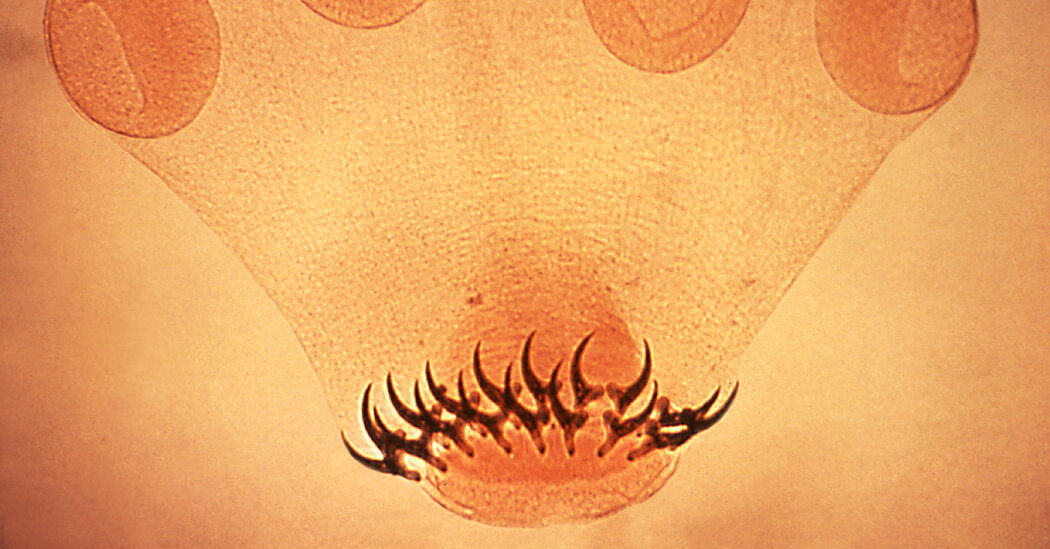And other questions about parasites.
Robert F. Kennedy Jr.’s disclosure that a doctor apparently found a dead worm in his brain has sparked questions about what brain parasites are, the damage they can cause and how, exactly, they get there.
How do parasites turn up in people? And what can they do to the brain?
Brain parasites encompass far more than worms. There are “legions” of organisms that can affect the brain, said Scott Gardner, a professor of biological sciences at the University of Nebraska-Lincoln who specializes in parasites. In addition to worms, common brain parasites include single-celled organisms such as Toxoplasma gondii and some amoeba.
The damage varies depending on the type of parasite and where it ends up in the brain. “Some of them actively invade the tissues and destroy tissues,” said Dr. Daniel Pastula, chief of neuro-infectious diseases and global neurology at University of Colorado Medicine. Others cause problems because of the inflammatory reaction that they trigger.
Tapeworms
Humans are typically exposed to tapeworms through raw or undercooked food or through food contaminated with feces.
“A lot of these things are transmitted to humans through feces,” said Dr. Edith L. Graham, a neurologist at Northwestern Medicine.
Doctors consulted by The New York Times speculated that Mr. Kennedy described symptoms of an infection with larvae from the pork tapeworm, Taenia solium, one of multiple types of tapeworm that can infect the brain. When a person accidentally swallows pork tapeworm eggs, the eggs hatch in the intestines, and the larvae can travel to other organs, including the brain. There, they form cysts, causing a condition known as neurocysticercosis.
